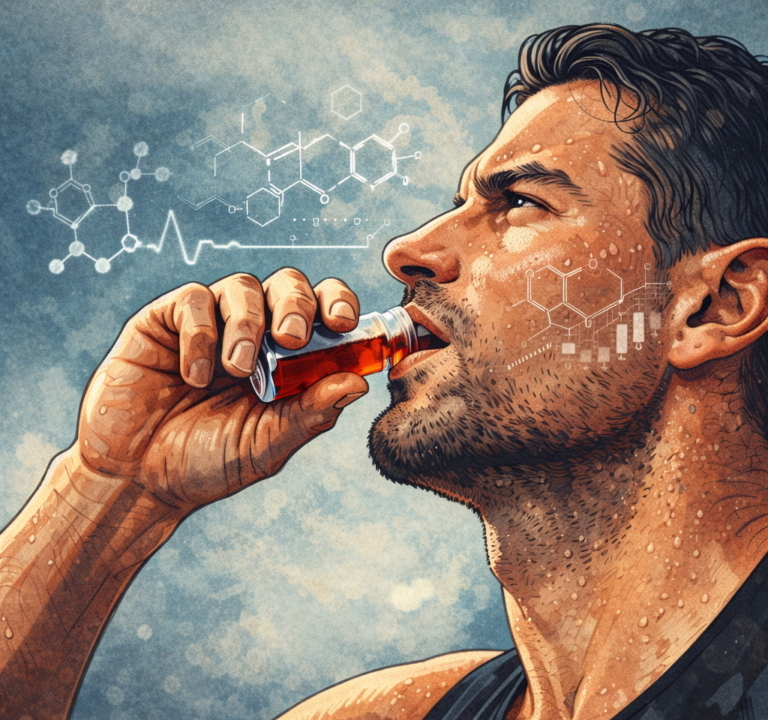CAN ATHLETES PERFORM ON A VEGAN DIET ?

Many voiced their discontent over the food offered to athletes being mainly plant-based, which raised an intriguing question - Can a vegan diet truly support peak performances ?
While the shift towards a more sustainable, animal-friendly food industry is essential, it is legitimate to question whether strict veganism is nutritionally sound to support peak performance - in sports and longevity. Here’s a closer look.
WHAT IS VEGANISM AFTER ALL ?
Plant-based diets vary widely in their exclusion of animal-derived foods; ranging from those eliminating certain animal products to strict veganism, which excludes all animal by-products - namely meats, fishes, seafoods, eggs, and dairy.
From a nutritional standpoint
Veganism promotes fruits and vegetables, legumes and nuts, and soy or pea-based meat alternatives
In popular belief, vegans therefore consume plenty of fiber and antioxidant rich-foods and few saturated and trans fats.
However, not all vegan diets are created equal. Unhealthy or dirty-vegan diet relying on ultra-processed meat alternatives & sweetened foods can be as detrimental to health as Western diets - and heavily impact ecosystems through soy, almond and avocado monocultures for instance.
Although challenging to accurately picture, most census indicate fewer than 1% of U.S. adults adhere to strict vegan rules - two thirds of which are women, and most come from younger generations of Millennials and Gen Zs.
Once a rapidly growing food trend, strict veganism could now be stagnating for reasons related to cost, taste, impracticality and health concerns.
POTENTIAL HEALTH BENEFITS
Diving deeper - There is some evidence supporting the health benefits of excluding (or at least reducing) meats and animal products.
Vegans tend to have better metabolic profiles (lower blood glucose and LDL cholesterol), lower rates of obesity, and reduced incidence of related conditions such as diabetes, cardiovascular diseases, and certain types of cancer.
Not all the greener - Non-meat eaters, especially strict vegans, are more prone to vitamin B12 & D, iron, calcium, essential fatty acids and protein deficiencies or having suboptimal levels required to prevent bone fractures, muscle mass loss or sarcopenia, anemia and immune impairments in the long run.
Context matters - However, many studies suffer from common flaws inherent to nutritional sciences - namely, choice of control diet and user selection bias.
The benefits of veganism are often magnified when compared to typical Western diets - high in red meats and processed foods, loaded in saturated fats & sugars. As for the latter, ethical vegans tend to be more health-conscious & active and have higher socioeconomic statuses, while those choosing veganism for health reasons may already have conditions facilitating improvements.
These factors can skew study results, making it difficult to attribute health benefits solely to avoidance of animal products. Instead, benefits may partly stem from avoiding processed foods, increasing fiber and antioxidant-rich produce or from having greater gut microbiota diversity as a result of a greater food variety - all features also common to balanced omnivorous diets.
CAN VEGAN DIET FUEL SPORTS PERFORMANCES ?
It can certainly be done - In stark contrast with the all-American diets of Simone Biles, Usain Bolt and Michael Phelps, several elite athletes - Lewis Hamilton, the Williams sisters, Novak Djokovic, or Tom Brady - credit their shift to a vegan diet for their success and longevity in sports.
Yet, the question remains: Is the exclusion of meat and animal products truly foundational and causative in the performances displayed, or is the association anecdotal ?
The keys to performance - Sports performances rely on a combination of
1. Muscle strength, flexibility & agility
Physiological basis : Muscle mass, contractile ability, anabolic hormones
Nutritional drivers : Adequate quality proteins (essential amino acids), cholesterol, creatine, collagen, biotin, calcium, vitamin D.
2. Aerobic endurance
Physiological basis : Heart, lung and vascular function, hematocrit levels, mitochondria abundance & function, and glycogen stores.
Nutritional drivers: Sufficient carbohydrates, fatty acids, iron and electrolytes.
3. Recovery
Physiological basis : Caloric & electrolyte balance and muscle repair.
Nutritional drivers: Proper carbohydrate and protein intake & ratio, hydration & electrolytes, and antioxidant & anti-inflammation nutrients.
Signs indicate veganism can support aerobic performances and reduce muscle soreness (DOMS), but may fall short in providing the protein punch to promote optimal muscle building and strength compared to an omnivorous diet.
Possible, but full commitment and careful monitoring required - Done right, veganism can fuel athletic performances - as none of the nutritional drivers mentioned are exclusive to plant-based diets; while no animal products inherently limit performances. However, vegan athletes need to be especially diligent, particularly when traveling, to meet the physiological requirements of elite sports.
CAN VEGANS AGE HEALTHY ?
A wider take on performance - At LangLeven, we do not limit performance to sports and athleticism, but also apply it to all aspects of wellness and longevity. In this context, it is worth questioning whether a vegan diet can sustain the lifelong quest to healthspan.
The main pillars of healthy aging are rooted in 1- metabolic health, 2- strength & stability, and 3- cognitive health; which rely on most nutritional drivers required for sports performance - namely high-quality proteins, essential fats, antioxidants, and calcium.
Here again, studies on aging and veganism face design shortcomings, and either fall short on follow-up periods or rely on surrogate markers of longevity like DNA age or epigenetics.
Biases aside, most studies suggest veganism slows down aging compared to standard Western diets. However, vegan’s superiority over well-balanced omnivorous diets cannot be proven as the addition of reasonable amounts of lean meats and dairy proves to yield longevity-gains over traditional plant-based diets.
Insufficient muscle mass and low bone density are major concerns and leading causes of sarcopenia, frailty and fractures in senior years. Prevention is best achieved through resistance training and adequate intake of high-quality protein. In this regard, protein and calorie-dense meats can be an ideal option for older individuals who often fall short on appetite and protein intake - which should be in the upper range of 1.2 to 1.8 g per kilogram of body weight.
Longevity-optimized diet To be truly beneficial, any lifestyle modifications must be easy to incorporate into daily lives and be maintained long-term. Many vegans are struggling with this - over half returning to their omnivorous ways within their first year of veganism.
A longevity-optimized diet including whole grains, legumes, and nuts; and reducing red & processed meats, and sugar-sweetened beverages shows even greater longevity benefits than strict veganism - largely attributable to omega-3 fatty acids from fishes.
IS VEGANISM RIGHT FOR YOU ?
Considering excluding or reducing animal-products ? Here is a longevity predictor to help you contemplate the potential benefits to gain from transitioning to plant-based habits.
If you decide to go forward, consider these examples of health and nutrition platforms to support your game :
Use nutritional trackers like MyFitnessPal
Simplify planning with AI platforms like Forks Over Knives and vegan ready-meals from Daily Harvest
Monitor your blood levels regularly with InsideTracker and Thriva
And get personalized vegan supplements from Nourished and Wholier
Additional considerations -
Plant proteins may have lower absorption, essential amino acids content and anabolic effect; whey proteins are generally superior in this regard.
Some plant nutrients can hinder the absorption of other vitamins and minerals.
Creatine, taurine, carnitine, carnosine, and vitamins B12 & D are all exclusive to animal foods. Monitor regularly to ensure optimal muscle mass, bone density, and neuromuscular health.
ONE LAST BITE
We advocate for balanced approaches, and in our view, a longevity-optimized omnivorous diet is the most sustainable path to achieving performance, wellness, and extending healthspan.
We thrive on a healthy lifestyle and believe in enjoying the occasional high-quality, lean meat as we see diet as part of a holistic approach to health, one including physical activity and a full commitment to overall well-being.
Our version of Michael Pollan’s famous quote could read
Eat food, (enough to support your venture), mostly plants, (and enjoy a good time around the table)
To a long life in the fast lane. Bon appétit !



















